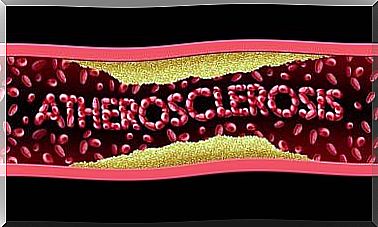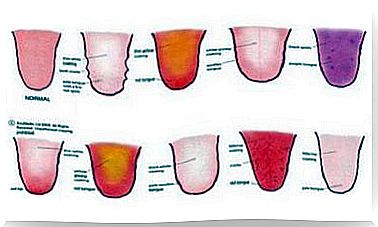6 Habits That Can Cause Thyroid Problems

The thyroid gland plays a vital role in maintaining the body’s health, but it can be affected by several problems and external factors.
The thyroid gland is shaped like a butterfly and, although not many people are aware of this, it plays a very important role in maintaining the body’s health and is responsible for the production of hormones that regulate the body’s metabolic processes.
The functioning of the thyroid gland is important in regulating body temperature, heart rate, mood and metabolic rate, which determines the rate at which the body burns calories.
In short, the proper functioning of this gland influences the health of the whole body. Therefore, any change in its functions can cause hormonal imbalances that lead to the development of various diseases and disorders.
Below are 6 unhealthy habits that can cause thyroid problems.
What are the most common thyroid problems?
Women are 8 times more likely to have problems with the thyroid gland than men, and risk factors increase with the onset of menopause.

The main thyroid dysfunctions are:
Hypothyroidism: Occurs when the thyroid gland no longer produces enough hormones. This leads to an imbalance in the body, causing the following symptoms:
- Fatigue and depression
- Feeling cold
- Muscle aches
- Slowing down the thought process and difficulty concentrating
- Digestive problems and constipation
- More abundant and longer periods
- Sudden weight gain
- Dry, brittle hair, skin and nails
Hyperthyroidism: It is the opposite of the condition described above. Occurs when the thyroid gland produces an excessive amount of hormones, causing the following symptoms:
- Tremors, nervousness and irascibility
- Feeling warm
- Increased or irregular heart rate
- Muscle weakness and fatigue
- More frequent chairs
- Rarely menstruation
- Sudden weight loss
- Hair loss
- Bulging eyes
What habits affect the thyroid gland?
Thyroid problems are largely caused by genetic or autoimmune diseases and the use of certain medications.
Various studies have shown that there is a link between certain habits and an increased risk of thyroid problems. They directly affect the body’s metabolism and health.
A sedentary lifestyle

Because of the comforts of modern life, many people have become extremely sedentary, endangering their health. Lack of daily exercise can affect the thyroid gland, leading to hypothyroidism.
Which is the solution?
Exercise for at least 30 minutes a day and avoid sitting or lying down for long periods of time.
Excess caffeine
Many people are unable to start their day without a cup of coffee, and this is not necessarily a problem. However, no specialist in medicine will recommend that you consume excessive amounts of caffeine, as this substance causes changes in the body, such as those in the thyroid gland.
Which is the solution?
Avoid drinking coffee or teas rich in excess caffeine and opt for natural water and juices.
Alcoholism

Excessive alcohol consumption affects the thyroid gland and can lead to hypothyroidism.
Which is the solution?
Avoid alcoholic beverages or consume them in moderation.
Tobacco
Cigarettes and the smoke they produce contain toxic substances, such as sulfocyanide, which can cause serious thyroid problems. Even more worrying is the fact that smokers face more difficulties in controlling these problems compared to non-smokers.
Which is the solution?
Smokers must do everything possible to give up this harmful habit and improve their quality of life. Non-smokers should avoid secondhand smoke.
Iodine deficiency

Iodine deficiency is one of the main causes of thyroid problems, especially hypothyroidism. This element is necessary for the gland to produce hormones and function properly.
Which is the solution?
Increase iodine intake by including the following foods in your diet:
- Sea salt
- Fish and seafood
- White beans
- Seaweed
- Kelp
- Onions and garlic
- Dairy products: yogurt, milk and cheese
Stress
The endocrine glands are sensitive to physical and emotional stress. It can affect the thyroid.
Which is the solution?
Learn to control stress through relaxation techniques and enjoyable activities.









